
A Thought on not Drinking
“Drinking is an emotional thing. It joggles you out of the standardism of everyday life, out of everything being the same. It yanks you out of your body and your mind and throws you against the wall. I have the feeling that drinking is a form of suicide where you’re allowed to return to life and begin all over the next day. It’s like killing yourself, and then you’re reborn. I guess I’ve lived about ten or fifteen thousand lives now.” Charles Bukowski
I often feel like I am trying to offer others suggestions on how to live life more correctly. Honestly, that is not my wish even though some people have told me at times I comes across that way. My sincere intention is that through reflection and introspection I can share different perspectives that challenge the way others think and inspire people to create healthy lifestyles.
In this article, I share my thoughts on drinking inspired by a conversation I had with my brother. It is relevant in our attempts to remove all those habits that are non-conducive to a life of more profound happiness and joy. It starts by knowing our ‘Why.’
I had to find my ‘Why.’ I’ve been searching for a long time to discover my reason to give up drinking. It has been a big part of my life, something I believe that I love doing, and perhaps I do. I began to notice that the pain of drinking was starting to outweigh the pain of not drinking. At some point, I think we all begin to see how certain habits, addictions, neuroses or other afflictions slow us down in life, causing us more pain than good. You may be experiencing it now.
For ages, I’ve known that drinking created unnecessary pain and suffering in my life, but no matter what I tried it seemed that the pleasure and the thought associated with alcohol always claimed victory.
Even when I was feeling sick, down, sorry for myself and regretful about drinking too much the night before or for many nights in a row, I still found myself heading to the shops to get some more beers.
Initially, it helps, as the joy masks the unease of life. And then quickly it turns into regret. I became pissed off and annoyed with my lack of self-control and discipline. I felt weak and unworthy. It’s easy to make ourselves feel shitty and even easier when we are not healthy and clear of mind.
What I realise is that if I keep drinking, I would never be able to live my dreams and accomplish my goals. I think I could live an okay life and be reasonably happy, but that doesn’t seem good enough to me. I am not ready to accept that life.
I knew deep down that drinking was affecting my health, both mentally and physically, and for as long as it did I would always be mediocre. I am not sure I think there is anything wrong with mediocre or average but I know that ordinary people often don’t get to live life on their terms and that is not the life for me.
That why I’ve said enough is enough. I still drink like a stupid teenager, but now I don’t find the need to do it as much as I did. I am not perfect, and I still fall into the trap of my old patterns. But I am kinder to myself and am slowly pulling myself out of the drinking hole.
We do not defeat addiction or break bad habits with an iron fist. We overcome addiction in awareness, compassion, and separation. We are not our addictions, we are not our Self, we are the consciousness that observes it all, and it is surprising and fascinating to watch as you begin to stop.
Stopping anything we become accustomed to including trying to break the chain of addiction is never easy. However, I have found after the first few weeks that it is a little easier to avoid cracking those first beers. They are usually the ones that always lead to many more. When I recently stopped for a couple of months, I found I didn’t even think about drinking. Well, almost. Specific triggers still fire up neural paths that get me thinking about this activity, and I know that over time they will only recede by avoidance.
I still think about it. I still think about smoking cigarettes and going out to party. I haven’t fully recovered from separating such thoughts from behaviour but I feel as though I am figuring it out. Slowly but surely.
Maybe there is always this underlying sense of suffering in life no matter what the conditions we create for ourselves. I suffered because I was drinking and smoking and having too much of the good thing and now that I am without it I am suffering because I am not. Is the battle ever won?
The main difference is that now I am better at choosing which level of suffering I want. I can better control the conditions, and in awareness, it is now easier for me to live with any pain that may result.
It is not about choosing pleasure over pain. It’s not about dissolving all suffering in this life. It’s about being confident and comfortable in living fully through each moment regardless of the pleasure or pain. And personally, I like to have a little more control over the type of desires or suffering I bask in.
If you wish to stop drinking, I believe it’s best to connect with why you want to stop. Ask yourself, “Why do I no longer want to drink?” And then when you answer that question ask yourself in response to that answer, “why do I want that?” Keep going until you can’t dig any deeper.
Then set a date to stop. As of Monday the 15th of December I will stop drinking. It doesn’t have to be a conclusive statement. Give yourself a period. I always find 30 days is a good benchmark to try something.
It may be okay if you drink after the 30 days as long as you don’t set your reward on completion as a night out on the booze. I tried that, and it didn’t work. I would reward myself with those habits that I was trying to give up in the first place – smoking and drinking. What happened when I did that was that I would be waiting in anticipation to meet that reward. Focusing on how I wished to feel rather than how I felt at any given moment. It is not a technique I would recommend.
The point is that it’s never a good idea to reward ourselves with those things that we wish to avoid and equally it’s never a good idea to beat up on ourselves when we do it again, whether we reach the goal or not. That will prevent us from trying again. It is likely once you reach the goal you’ll feel so good that you won’t want to do it anyway.
I think that the aim is not the reward itself, nor the end point we reach but rather the progress we have no matter how large or small. The purpose is the increased sense of clarity, insight, and awareness we gain as we deal with all the challenges within the pursuit.
I found if ever I slipped as long as I got back on track quickly I would be okay. Extending our errors or moving into old patterns for too long makes it harder to bring back the motivation and focus.
At these times I also find it more beneficial to think about how well I am doing rather than think about how much of a “fu*k-up” I am. If you think you’re a “fu*k-up,” you will likely convince yourself of this and continue those behaviours that your fu*ked-up-Self likes to do.
It’s also good to find other activities to occupy your time. When you have that feeling come on, be aware that this as it is your trigger. The next thoughts and actions are critical. It only takes a moment to decide to do something that you don’t want to do. And because our brains are designed to follow the familiar more prominent paths we will likely act in favour of the known options than those which we are unfamiliar.
In those moments we must check-in with why we don’t want to do the undesirable behaviour and then move, sometimes with control, forced and against our will, towards new activities that will distract and remove us from everyday temptations and environments. I found this easy in Japan because my environment and surroundings were all unique and lacked, not all, but most temptations.
Go after activities that are of interest, aligned with your passions, that make you feel good (without the downsides), or that are physically and mentally demanding. I found if the alternative to drinking weren’t as rewarding as drinking itself I’d always choose or revert to alcohol.
The problem with addiction is that the pleasure we receive is longer lasting than natural highs, however, on the flip side, so is the regret, pain or come down. And that is, ultimately, what we need to weigh up and become more aware of mentally.
I am not perfect, but I am learning, and with that, I believe I am progressing. I still love a drink. I hate feeling like I am missing out. I often wonder if “balance” is possible and if it is, is that even a good thing for such poisonous behaviours? Also, I wonder if sobriety or restriction with anything is necessarily a right way to live life.
I feel much better when I am not drinking. I am more productive, capable, motivated, clear and happy. As a consequence of not drinking, it’s now becoming a harder to drink. It sounds funny saying it, but it’s true. However, I am also acutely aware of how easy it is to derail my progress. I am happy and confident that in greater awareness I can win.
Changing our habits doesn’t change who we are. It does, however, change what we are capable of doing. If what you are doing, if how you are living your life, isn’t as you desire than it is worth trying. It is worth it to keep on trying.
Further Reading and Resources
TED Talks: Ideas worth spreading
Elite Daily: The Voice of Generation Y
Four Hour Work Week: How to escape the 9-5, live anywhere and join the new rich.
The Minimalists: How to pursue a minimalist lifestyle and be happier.
Mind Hacks: Tips and Tricks for Using Your Brain
Rich Roll: Plantpowered Wellness Advocate
The Art of Charm: Build confidence, feel comfortable and networking differently.
The Art of Manlness: Encouraging men to be better husbands, fathers, brothers, citizens.
Tiny Buddha: Simple wisdom for complex lives.
Mind Body Green: Lifestyle media brand dedicated to inspiring you to live your best life.
Zen Habits: Find simplicity and mindfulness in life.
Creative NonFiction: “true stories well told.”
Barking Up the Wrong Tree: science-based answers and expert insight on how to be awesome at life.
The Positivity Blog: Practical articles on happiness, self-esteem, productivity and social skills.
FIND YOUR HIDDEN WHY with THE HIDDEN WHY (THW)
BUILD YOUR LIFE AROUND YOUR PASSION AND LIVE WITH PURPOSE
Sign up for free below and receive cool stuff from me each week + Plus a free copy of “The Four Pillars of Success”
In my weekly emails you will receive ideas, thoughts, learning’s and inspiration on:
- How to design a life that you want and live by your terms
- How to live a life with passion & purpose
- Methods, strategies, & techniques on life hacks
- Messages on how to better live your life
- We will also keep you up to date with fantastic interviews from THW podcast




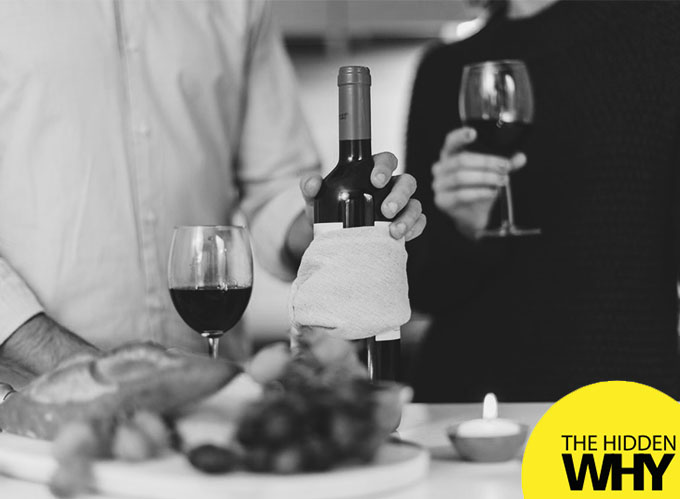

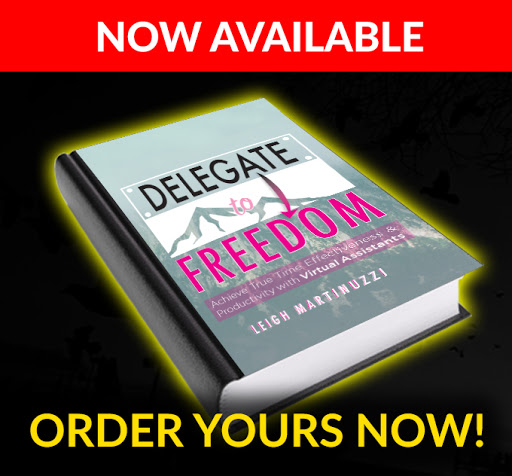
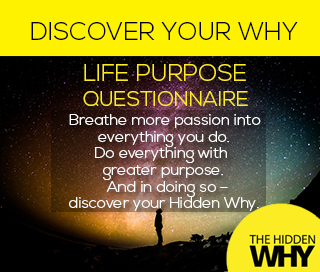



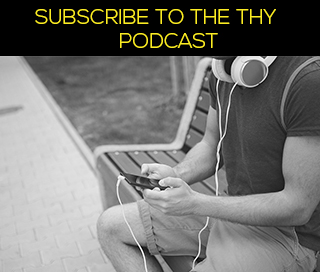
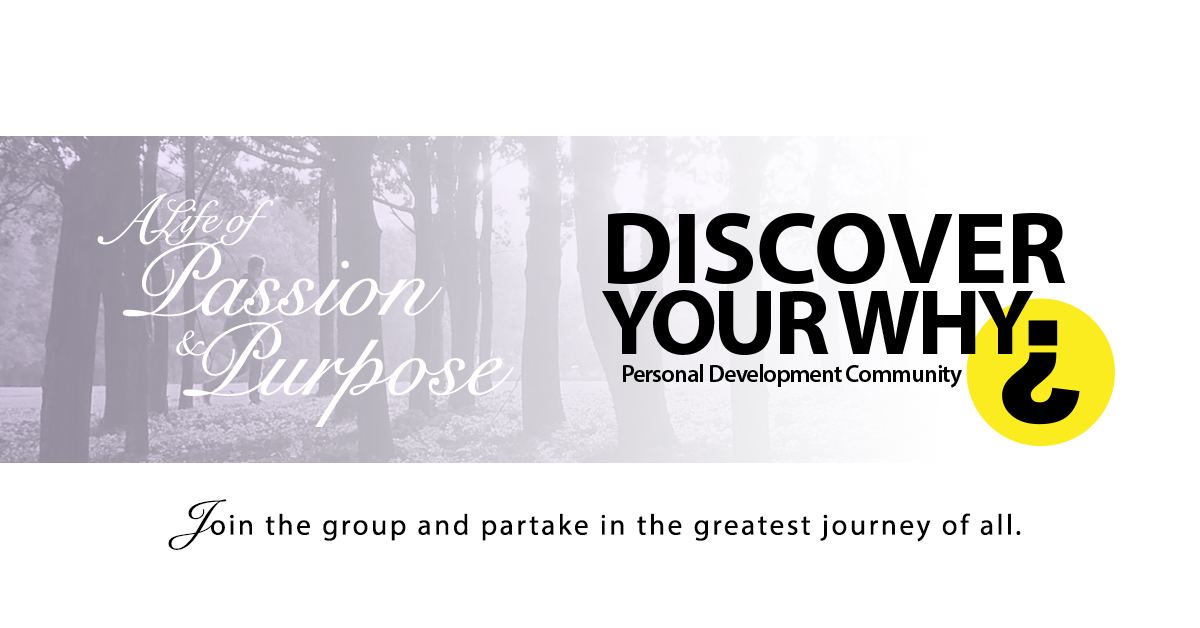
Leave a Reply